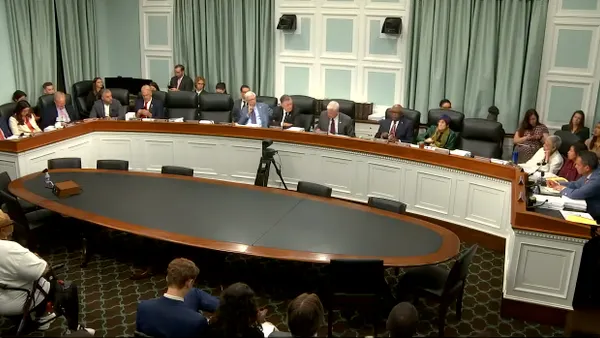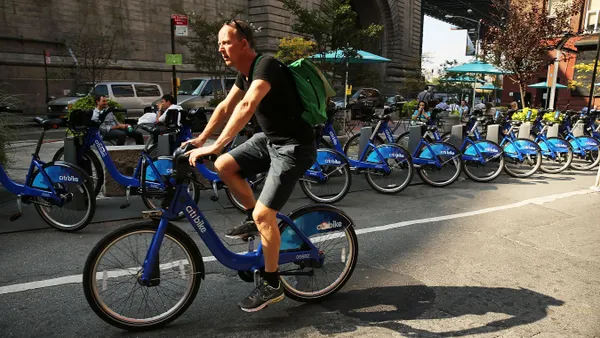Dive Brief:
- Rental car company Avis will integrate the parking app Arrive into its own app, giving Avis drivers direct access to Arrive’s planning and payment platform.
- Arrive allows drivers to find open spaces or reserve spots in advance, and uses Bluetooth and location technology to automatically handle payment. Avis will apply all parking fees to a customer’s existing credit card.
- "The Arrive app integration removes the stress and hassle of finding parking for both road warriors and leisure travelers, while also making the lives of travel managers easier,” said Avis Chief Innovation Officer Arthur Orduna in a press release. "This partnership cuts across all three of Avis Budget Group’s innovation initiatives: reinventing rental, digitizing the business and developing new models."
Dive Insight:
Arrive pitches itself as a solution to last mile congestion, making it easier for people to find parking without circling to multiple lots and pay for them without even taking out a credit card. According to Arrive’s website, it has more than 500 distribution partners and is active in more than 230 cities in the U.S. and Canada. Integration with the Avis app makes it available to more users — especially out-of-town drivers in rental cars — who may have to rely on commercial lots in crowded business or tourist districts.
Similarly, SpotHero announced a partnership with urban transit app Moovit, helping people plan multi-modal trips that involve parking at or near transit stations. These steps can reduce idling or circling in looking for parking, and make it more possible to plan and execute trips all in one app.
Parking-related congestion has been a constant problem for cities, and could get worse if autonomous vehicles put more people in single-occupancy cars. Apps that direct people to open spots or reduce circling can help, but some cities have taken more extreme steps to reduce parking congestion. Some cities have explored loosening parking requirements to encourage more multimodal trips, and San Francisco has instituted demand-based pricing to discourage more parking at busy times.









